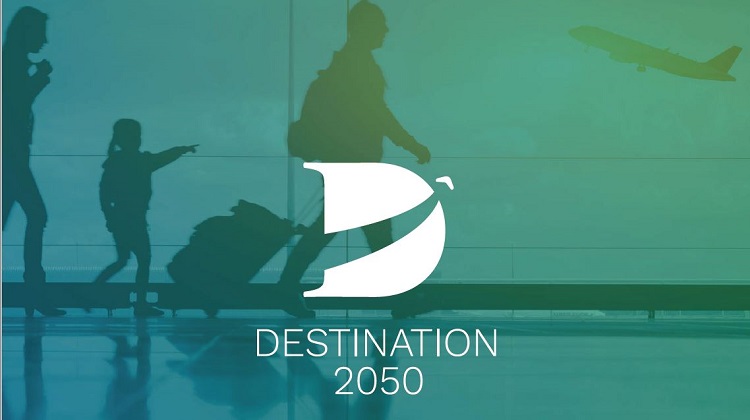European countries sign breakthrough “Toulouse Declaration” with aviation driving sector’s decarbonisation plans forward

- First-ever public-private initiative supporting aviation’s decarbonization goals signed by over 35 European countries and 146 industry stakeholder groups in Toulouse, including the five leading European aviation associations2 represented through Destination 2050
- Declaration fully aligns with the sector’s collective European and global initiative to achieve net zero CO2 emissions by 20503
- Destination 2050 partners reiterate their call for a structured dialogue between policy-makers and industry via an “EU Pact for Aviation Decarbonisation”, with concrete policy as well as financial measures to support aviation’s green transformation
- Paves the way for the UN’s ICAO to deliver on strengthened climate goals at 2022 Assembly
Toulouse / Brussels, 04 February 2022 - The Destination 2050 associations and their members today endorsed the “Toulouse Declaration” – the first-ever public-private initiative setting a joint vision and supporting European aviation’s goal to reach net zero CO2 emissions by 2050. This is also the first joint initiative of its kind globally, aligning all European stakeholders on the principles and actions needed to decarbonise and transform its aviation sector, representing a true breakthrough.
The Destination 2050 decarbonisation roadmap was launched in 2021 by Europe’s five leading aviation associations, representing airlines, airports, aerospace manufacturers and air navigation service providers. It lays out a joint industry long-term vision with the same net zero CO2 emissions objective, consistent with the EU’s long-term climate goals and the Paris Agreement.
Next step: An EU Pact for Aviation Decarbonisation
The Destination 2050 partners now expect the Toulouse Declaration to be translated into a structured dialogue and concrete policy action. Industry is already transitioning to a decarbonised future through improvements in aircraft and engine technologies, the development of sustainable aviation fuels, improvements in air traffic management and aircraft operations, as well as through efficient economic measures. An effective policy, regulatory and financial framework is needed at European and national level to support and accelerate this transformation.
The Destination 2050 partners therefore call on the European Commission and EU Member States who have signed today’s Declaration to develop and support as a next step an EU Pact for Aviation Decarbonisation. In this Pact, Member States and the Commission should commit to a structured dialogue with industry to review and complement the Fit for 55 legislative package with concrete and timely supportive measures, including:
- Public and private funding to channel investments, R&D and innovation into decarbonization and a more sustainable aviation ecosystem - including through European partnerships such as the Alliance for Zero Emission Aviation, Alliance for Renewable and Low Carbon Fuels Value Chain, Clean Aviation, Clean Hydrogen and SESAR Joint Undertakings - and by including relevant aviation activities into the EU taxonomy for sustainable finance;
- Initiatives and incentives for:
- Earmarking of revenues from ETS to support concrete decarbonization activities within the civil aviation sector;
- More sustainable airport infrastructure, operations and related services including through Airport Carbon Accreditation;
- Public incentives for the deployment of sustainable aviation fuels;
- Fleet renewal coupled with aircraft retirement, and for bringing zero-emission aircraft to the market by 2035 - including through the supply of green hydrogen and electricity (and its deployment via related airport infrastructure);
- A more sustainable, network-centric, modern and digital Air Traffic Management system through the Single European Sky and SESAR.
Beyond Europe: Stepping up global ambition & action
The Declaration’s supporters have also committed to working with the UN’s ICAO towards the adoption of an ambitious “long-term aspirational goal” (LTAG) for aviation which is consistent with efforts to reach net zero CO2 in 2050. The adoption of such a goal would take place during ICAO’s 41st Assembly in September 2022.
Aviation is a global business, and a strong global framework should be established and put into action to enable aviation’s decarbonisation to happen on an international scale, matching Europe’s ambition while at the same time preserving a level playing field and international competitiveness.
For more information, visit www.destination2050.eu

